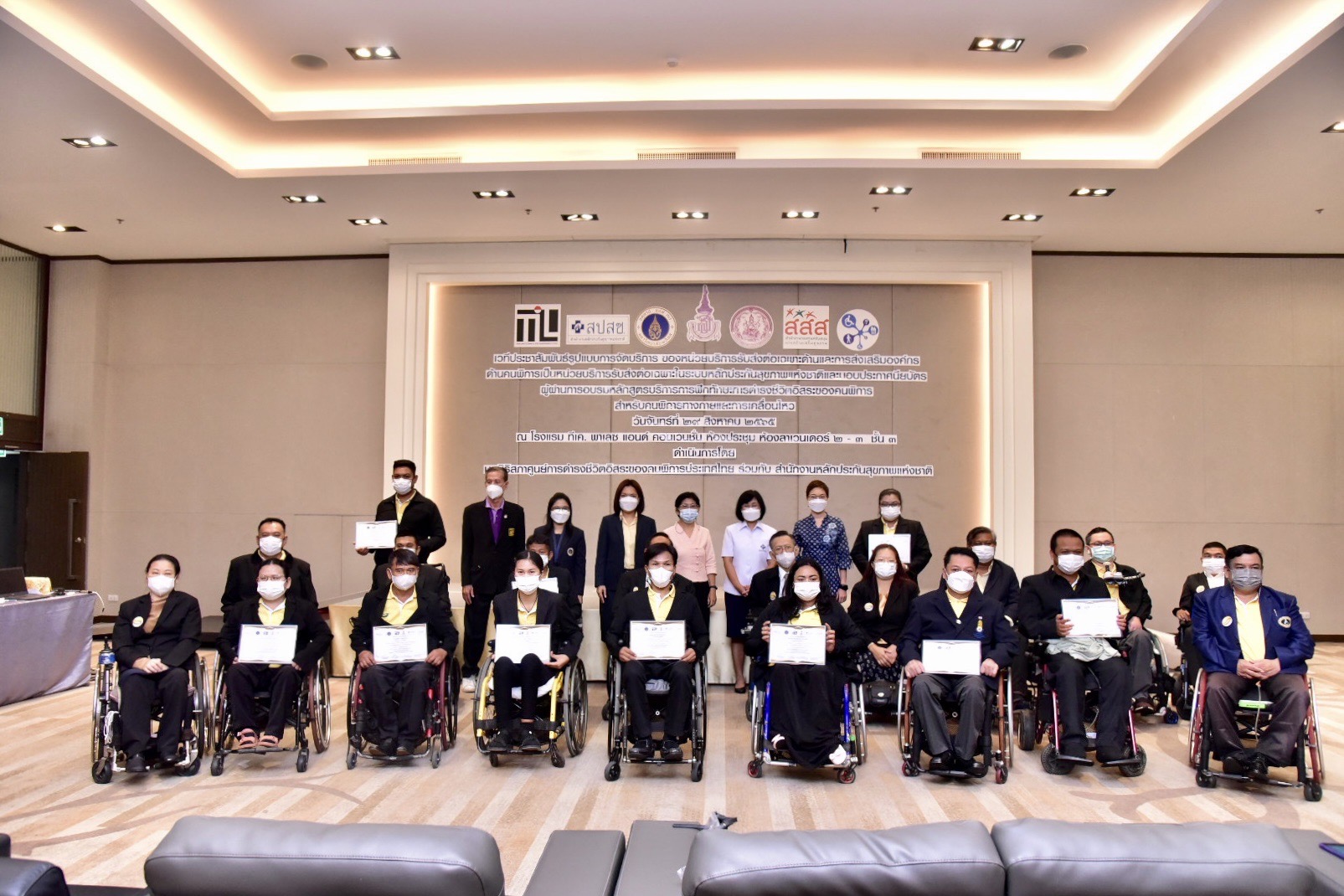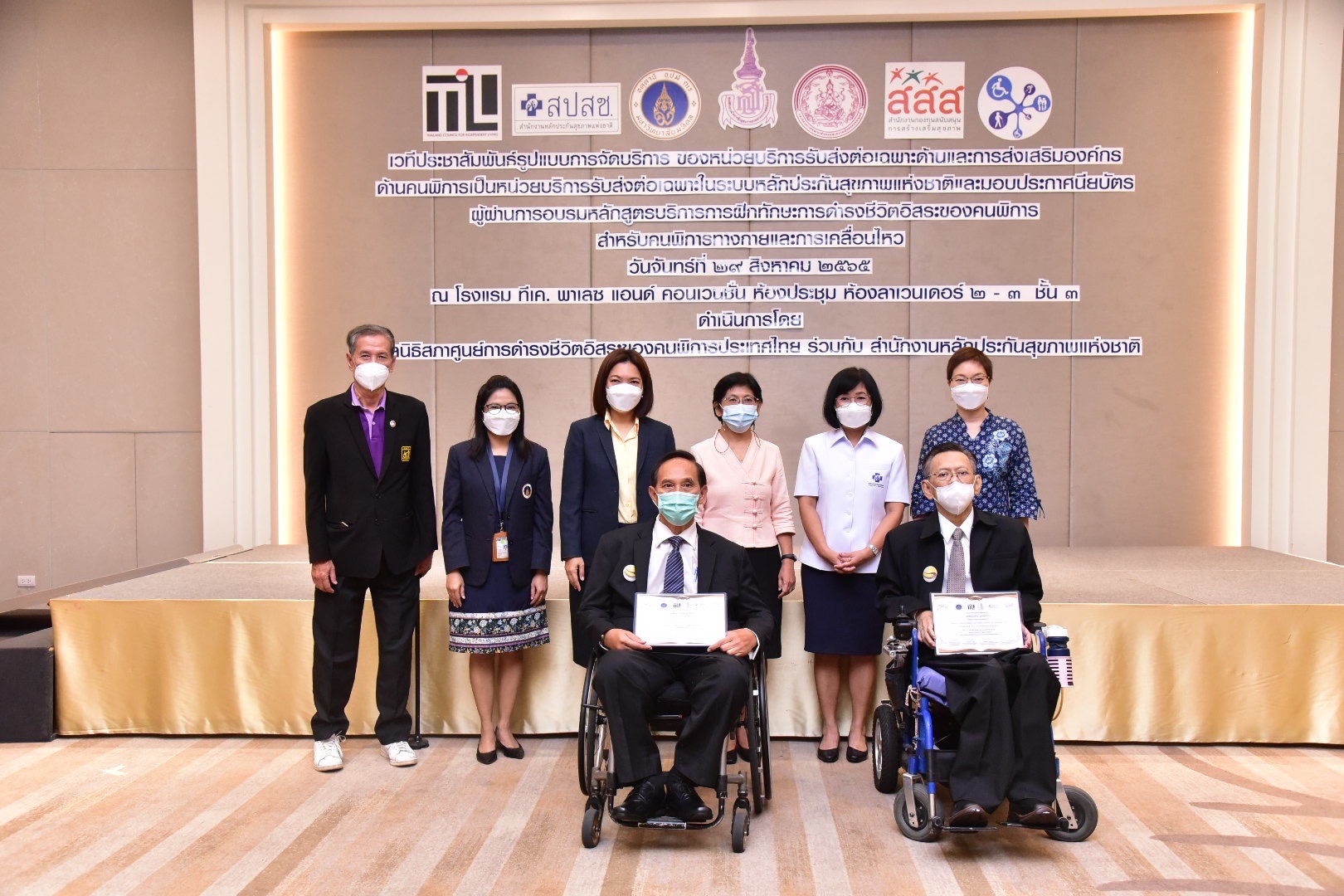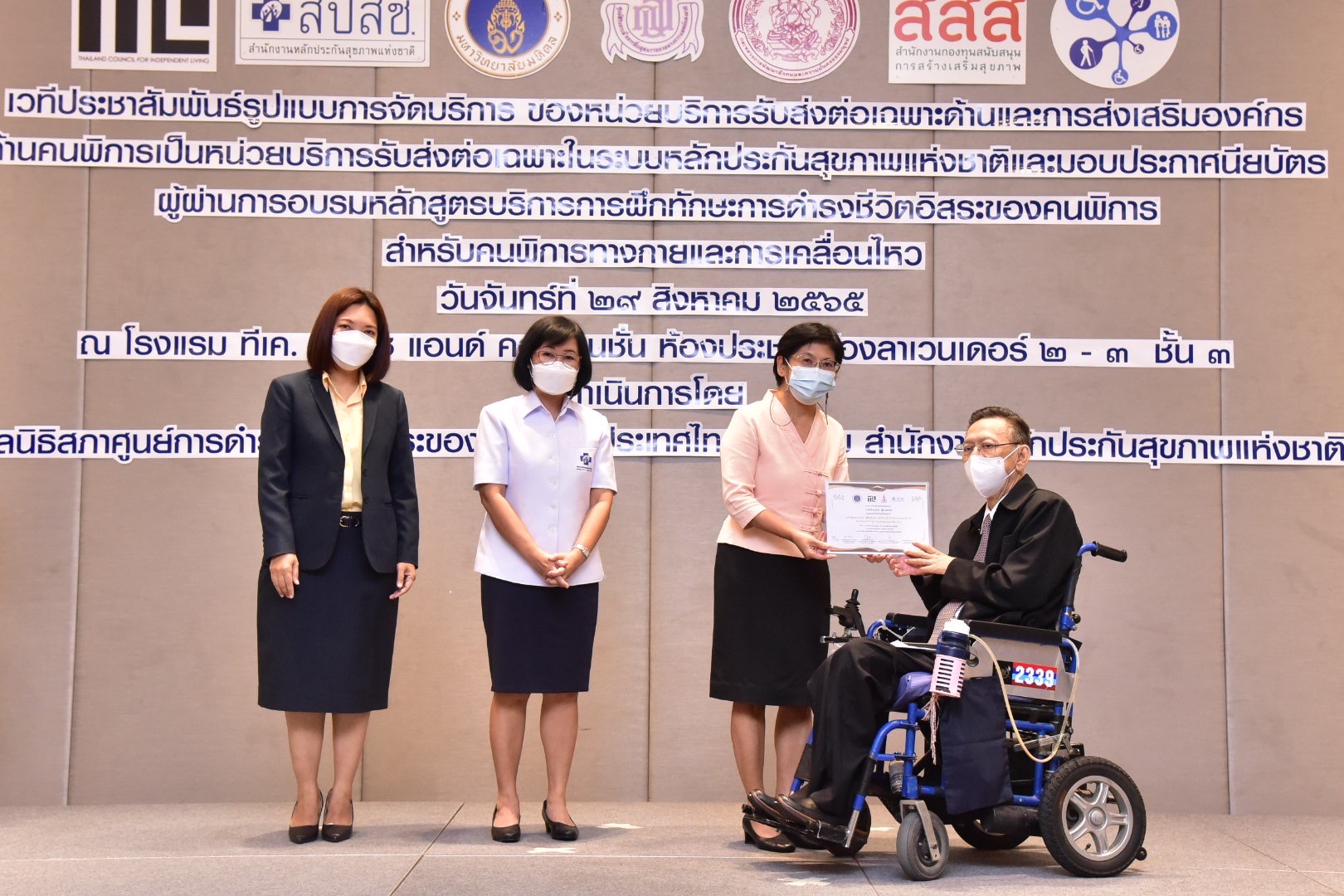 NHSO supports disabled people to live independently
The National Health Security Office (NHSO) provides support to disabled people’s organizations promoting their independent lives.
NHSO supports disabled people to live independently
The National Health Security Office (NHSO) provides support to disabled people’s organizations promoting their independent lives.
On August 29, the NHSO in collaboration with the Thailand Council for Independent Living (TCIL) and the network of disabled people’s health held a conference to discuss the promotion of disabled people’s independent lives and find ways to increase their access to healthcare services and welfare.
Udomchok Churat, TCIL’s president, said during the event that promoting disabled people’s independence was important for gaining their dignity.
“People living with disabilities should be able to live independently with opportunities to live like normal people, including having the ability to travel and socialize,” he said.

“Our mission is to change their mindset and help them see their potential and be part of the society.”
During the event, disabled people who passed the training for promoting independent living received certificates.
The training is one of the TCIL’s activities to build disabled people’s skills as change-makers who can educate and encourage others to live independently.
Udomchok shared his experience visiting Japan some years ago when he observed the potential of disabled people there. They could commune to work and be the leaders of workplaces, he recalled.

This happened because of the availability of support, including the public transportation system designed to serve disabled people and inclusive employee recruitment.
In 2002, some Japanese disabled people organizations began providing support to Thai organizations working for improving disabled people's livelihoods.
The supports include training disabled people to live independently and providing them with mobility aids.
The training changed their perception and shifted their behaviors to be more socialized, eliminating their belief that disabled people must spend life on beds.
It also led to the establishment of TCIL.
In the past years, TCIL has opened centers for independent living in many provinces to train disabled people to depend on themselves and return them to society.
It has collaborated with the NHSO, which has provided the fund and assistance in running the centers.
Dr Jakkrit Ngowsiri, the NHSO deputy secretary-general, said that the key to disabled people’s independent living is their participation.
They must have the decision-making power to plan how they want to enhance their lives, instead of waiting for the state’s assistance passively.
“We support the idea of expanding centers for independent living in every province or at least 50% of provinces in Thailand,” said Dr Jakkrit.
“Disabled people need encouragement to lead the changes.”
He added that local administrative organizations could take part in running the center too.
There are some success stories of local government's role in improving disabled people’s livelihoods, including introducing them to jobs and services to fix their mobility aids when needed.





